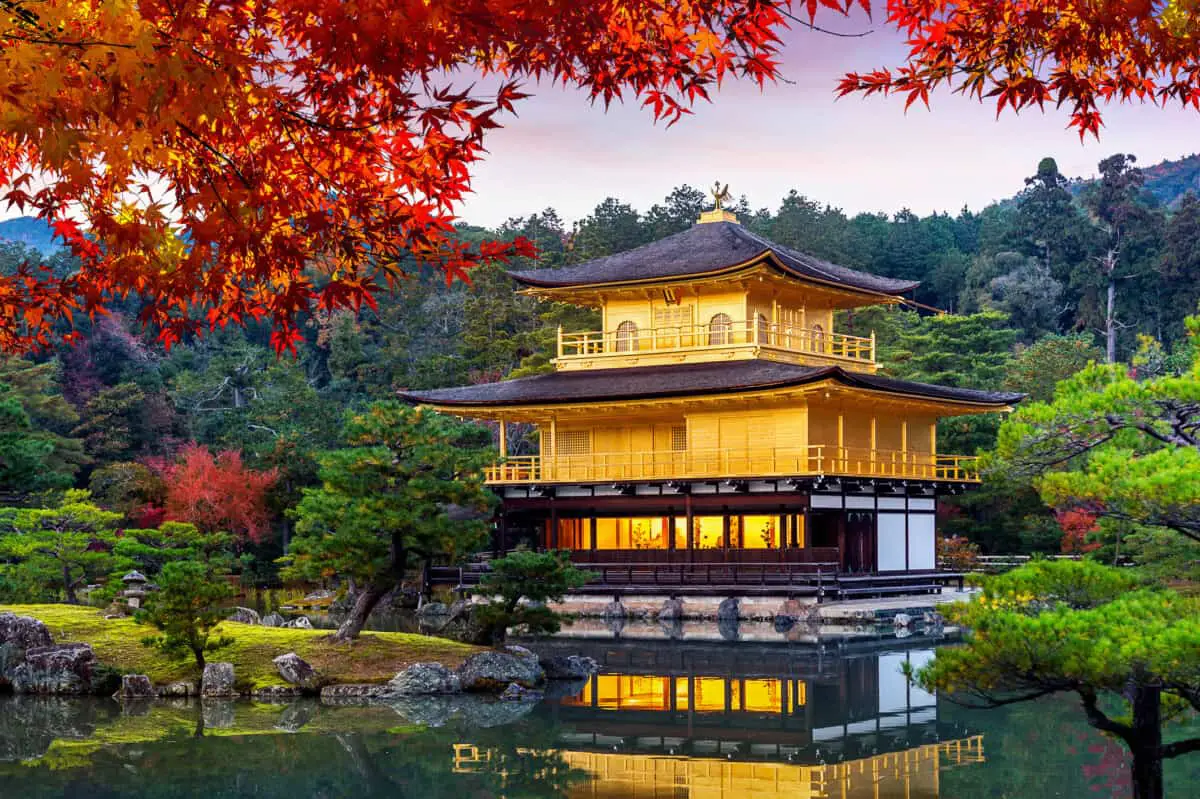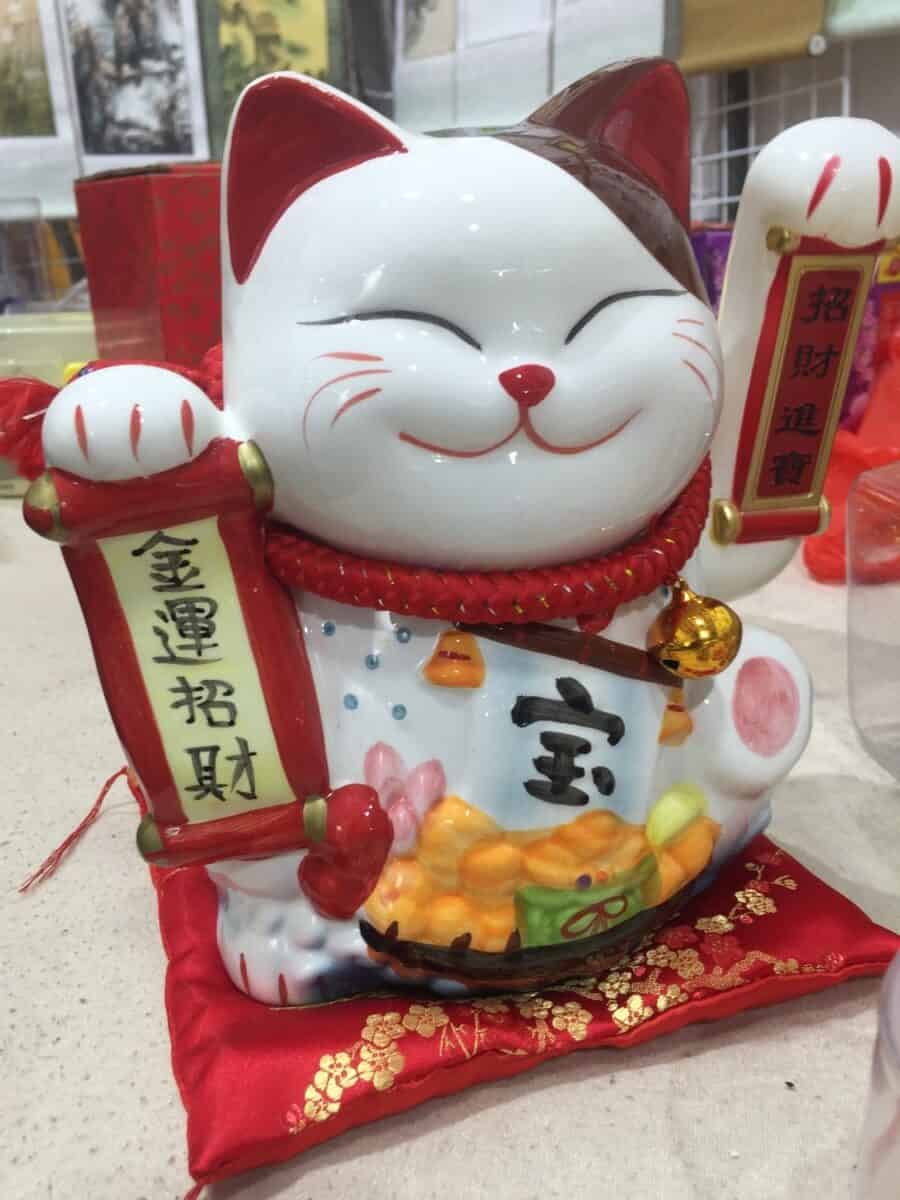Japan is on many people’s bucket lists to visit and is a country many dream of living in. It’s no surprise, as there are many things unique to Japan that can draw the interest of foreigners to immigrate. From the beauty of the country to the unique customs, the food, and the culture, there are so many things about Japan that are intriguing.
The more people you ask about how it is living in or visiting Japan as a foreigner, the more stories you are going to hear. Keep in mind that you should take these stories as anecdotal evidence, and go to Japan with an open mind.
If you are respectful of the Japanese way of life and express a keen interest in learning about Japanese culture, you should receive the same respect back.

If you are considering moving to Japan, you might be interested in learning more about how foreigners can assimilate into the culture with the least amount of effort.
Finding A Place To Live
It can be difficult to find somewhere to live in Japan, whether temporarily or permanently. This may mean you spend some time in a hotel or guesthouse until you find proper accommodations. If you are not careful when selecting an apartment, you can potentially be taken advantage of by overpaying as an outsider.
There is an old custom in Japan called key money, where you are expected to pay an additional fee to the landlord on top of paying rent.
This custom started when it was difficult to find housing in Japan, so landlords were often bribed to give someone an opportunity to live in their building or rental property.
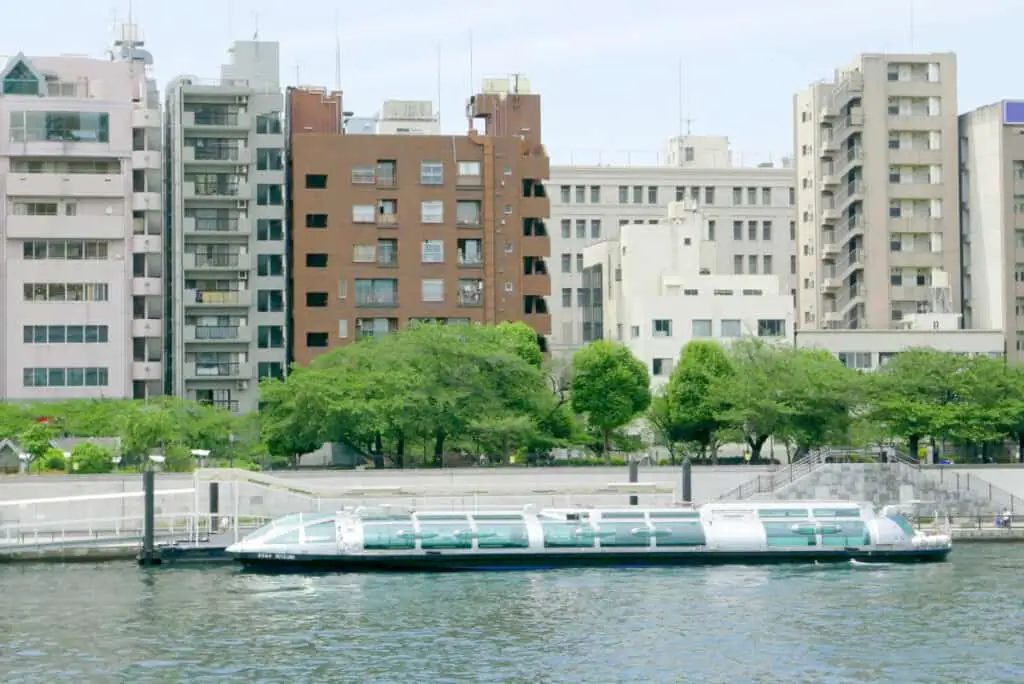
Some landlords will still do this, but it’s not a required fee. Therefore, if you encounter a landlord who asks this of you, it’s best to keep looking or attempt to negotiate the amount.
The walls within apartments if you live in an older building can be very thin. If you are noisy, like to play loud music, or turn the volume up on your television, your Japanese neighbors may and often complain about such disruptive behavior.
It’s best to be respectful of the shared space as much as possible. Japan is a country where people try not to cause others problems and thus following the rules of politeness and courtesy are very crucial.
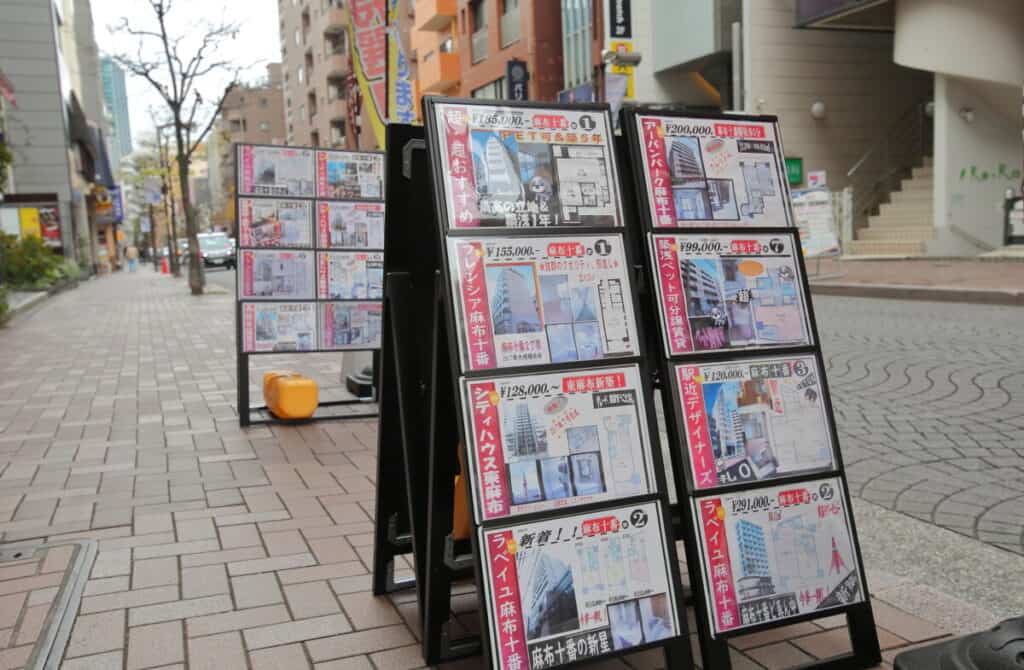
The customs in place to move from one apartment to another are also different. There is a lot of paperwork to fill out, and there is sometimes a certificate you have to get from your current location to bring to your new rental to advise them of your move.
This applies more when moving from one apartment to another, rather than your first rental.
Train Etiquette Is Different In Japan
Chances are, you’ll be taking many train trips while you’re in Japan. You may notice that the train riding experience is a little bit different in Japan than in other places with public train transportation.
For example, people don’t always sit side by side on the train. Even if there are empty spots on the train, you may notice some locals will choose to stand. Don’t take this personally, it could be for a number of reasons that have nothing to do with you.
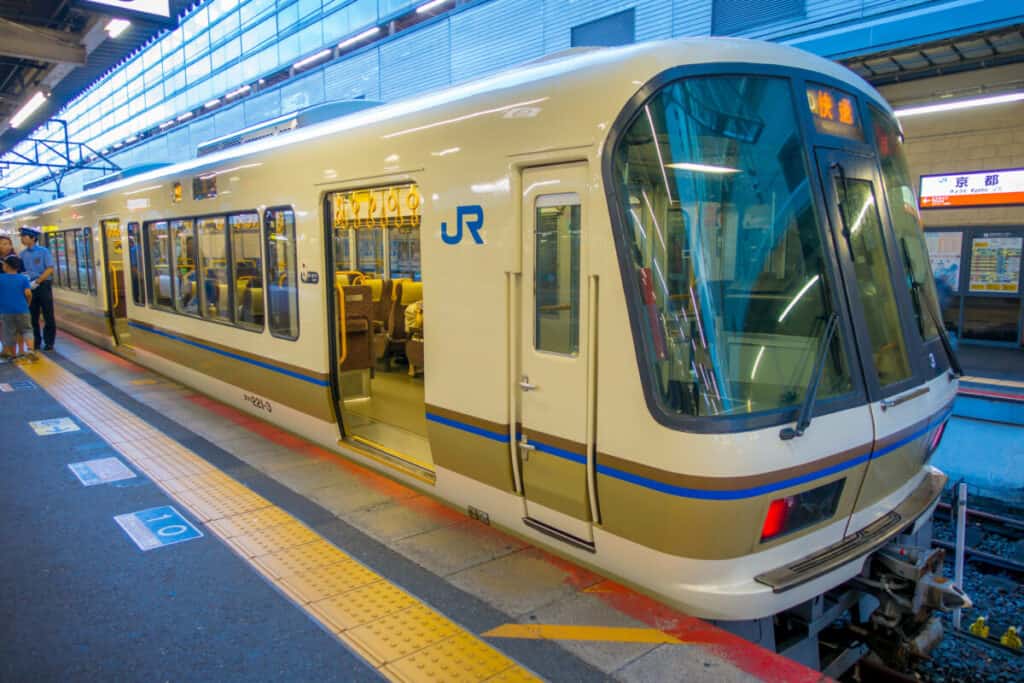
It’s also not considered polite to carry on loud conversations or to be on a phone call while on the train. It can be disruptive to others around you that are trying to commute to and from work in peace and quiet.
Working In Japan
If you don’t know Japanese, you will probably have a hard time finding a job. This makes sense, as communication is an integral part of any job. However, there are ample opportunities to move to Japan to teach English, if you are looking for that type of experience.

There is also a special visa implemented by the Japanese government for skilled blue-collar workers that want to move to Japan and lend their skill set. Again these types of professions may require basic Japanese language skills.
When moving to another country, one should be expected to try and learn the language as much as possible.
Wearing Face Masks
People in Japan have been wearing face masks for numerous reasons for quite some time. One common reason is to protect against potential sickness or to protect others from current sickness. If you’re ill and don’t wear a face mask, it’s considered bad manners.
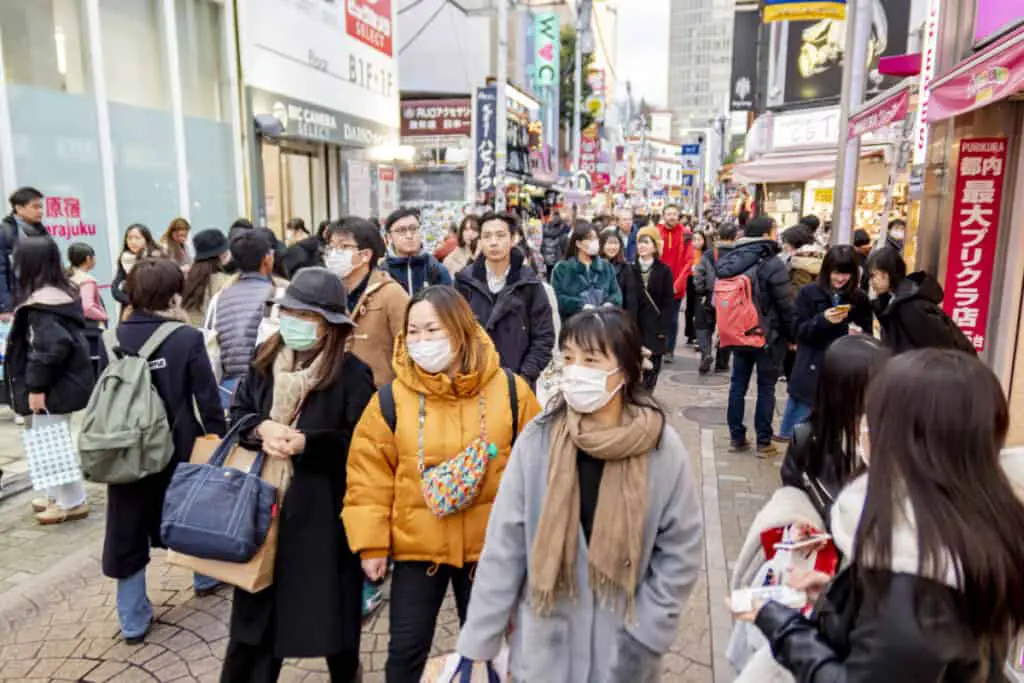
Face masks are also sometimes worn to protect against the cold of a harsh Japanese winter and to avoid getting a runny or cold nose. It can also help protect against common allergens and pollutants in the air found in the springtime as sakura blossoms are everywhere.
Being Sick In Japan
Everyone gets sick from time to time. Getting medical care in Japan can be a unique experience for a foreigner. If you don’t speak very much Japanese, getting medical care could prove to be very difficult unless you have someone who can translate for you.
First of all, it can be difficult to locate a medical facility to go to that will help you with your current condition.
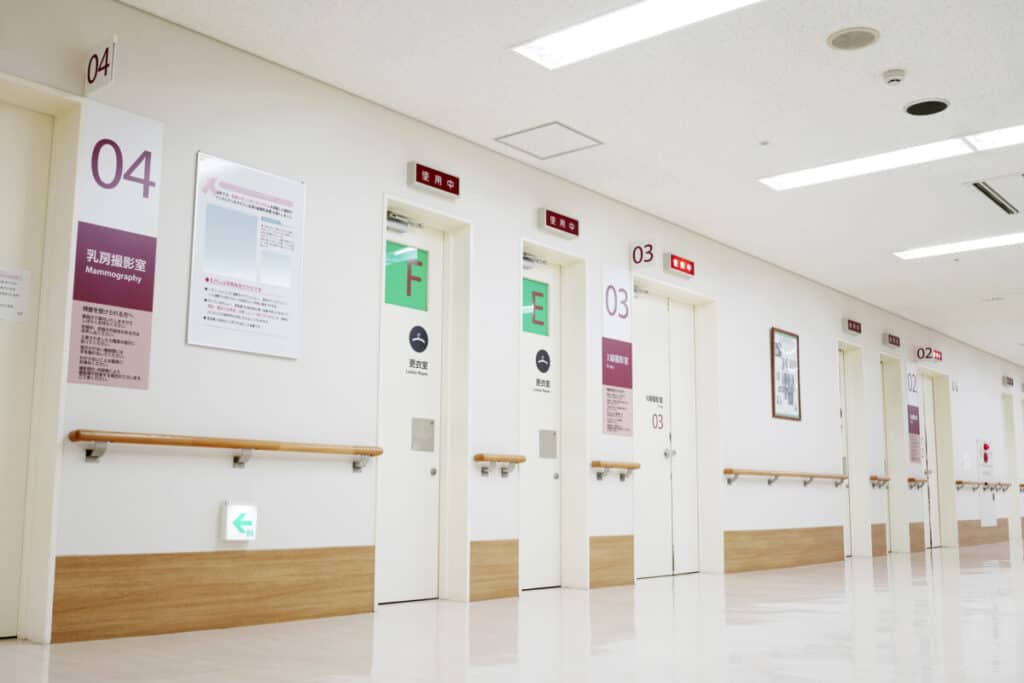
If your Japanese is lacking, you might be able to find a clinic that has English-speaking doctors or staff, if you’re willing to travel rather than go to the closest clinic. Otherwise, you’ll need a translator to ensure you get the proper care.
Additionally, if you are working and you get ill, you don’t just call in sick. You are expected to go to a doctor to get a proper diagnosis.
Your workplace will want to know exactly what you are ill with in case it’s contagious. Then, they can ensure you don’t come back to work until you are past the contagious period.
Asking For Help
You’ll most likely have to ask a stranger for help more than once when you move to Japan. This is true of any new place. You might have to ask someone for directions or for recommendations for a particular service.
As with any country, you’ll find that in different regions of Japan, some people will be more than willing to help while others may not be as receptive to strangers.
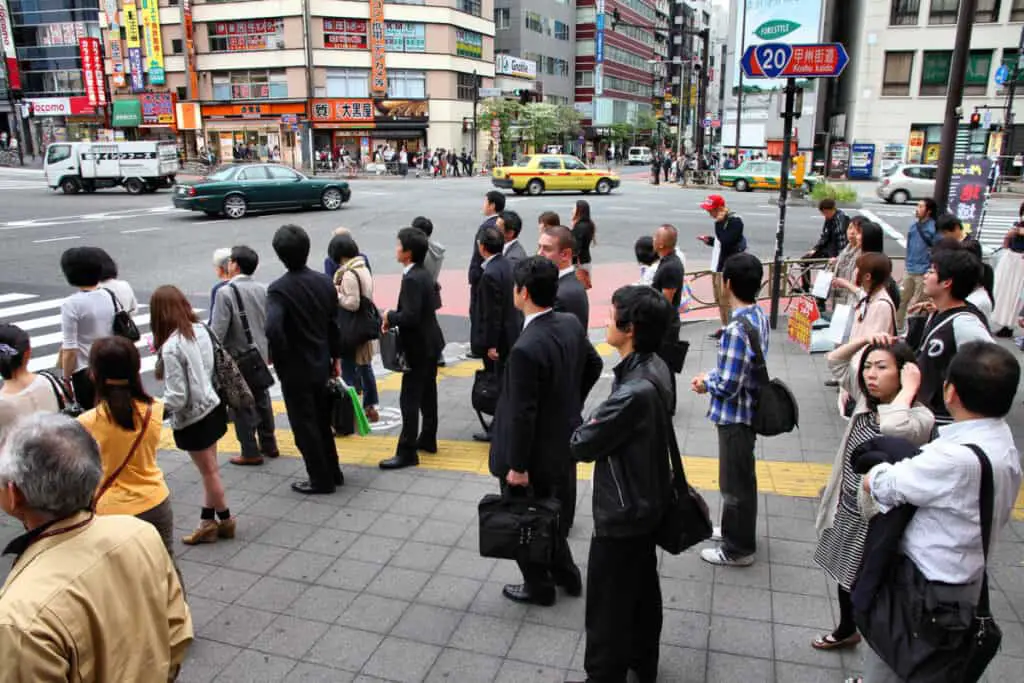
However, the majority of people in Japan are very polite. They may even offer to walk with you so you can find the place you’re looking for.
If you approach locals with kindness and positivity, regardless of the reason you need to interact with them, you’ll most likely get a warm reception.
Communication Barriers
Not being fluent in Japanese is not the only challenge you may face as a foreigner in Japan. If you don’t make an effort to learn and abide by Japanese customs as much as you can, it could be difficult to get a warm reception from locals.
Japanese people are often misinterpreted as being stern and unchanging. The reality is that Japan has centuries of customs and traditions that they hold dear, and they are taught from an early age how to behave and respect these customs.
Best Translation Apps Via InsideKyoto.com
It can be just as daunting for them to experience a foreigner not abiding by these customs as it is for you to experience them for the first time.
Now, because foreigners may not know Japanese customs, behavior protocols, and etiquette practices, you may be able to get away with certain things that a Japanese person probably wouldn’t.
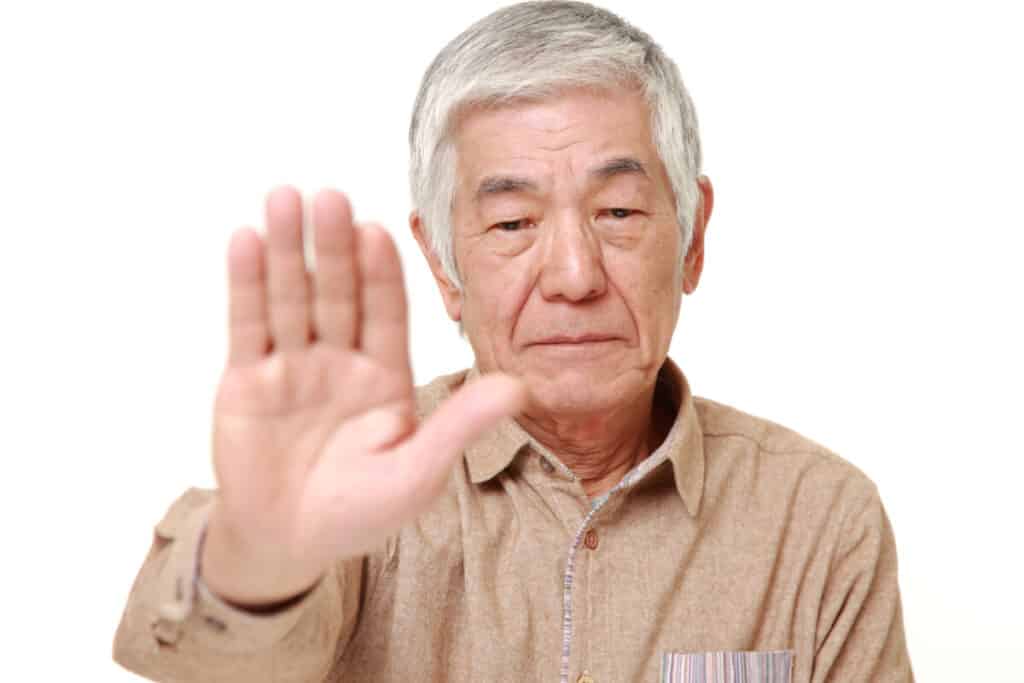
It’s best not to take advantage of this because you may not be spoken to about your error due to the language barrier, especially if you’re hoping to integrate into Japanese society as much as possible.
Unfortunately, no matter how much you try, there will be some people that will treat you differently because you are a foreigner.
Once again, it is not something to take personally. It’s still important to remain respectful of those who are wary of you because you are not Japanese.
Fitting In
There are a number of reasons why you might feel like you don’t completely fit into your new country as a foreigner. It should not cloud your entire experience of living in Japan, because these troubling encounters will most likely be few and far between.
Many people who have experienced living in Japan as a foreigner has experienced a small level of feeling like an outsider.
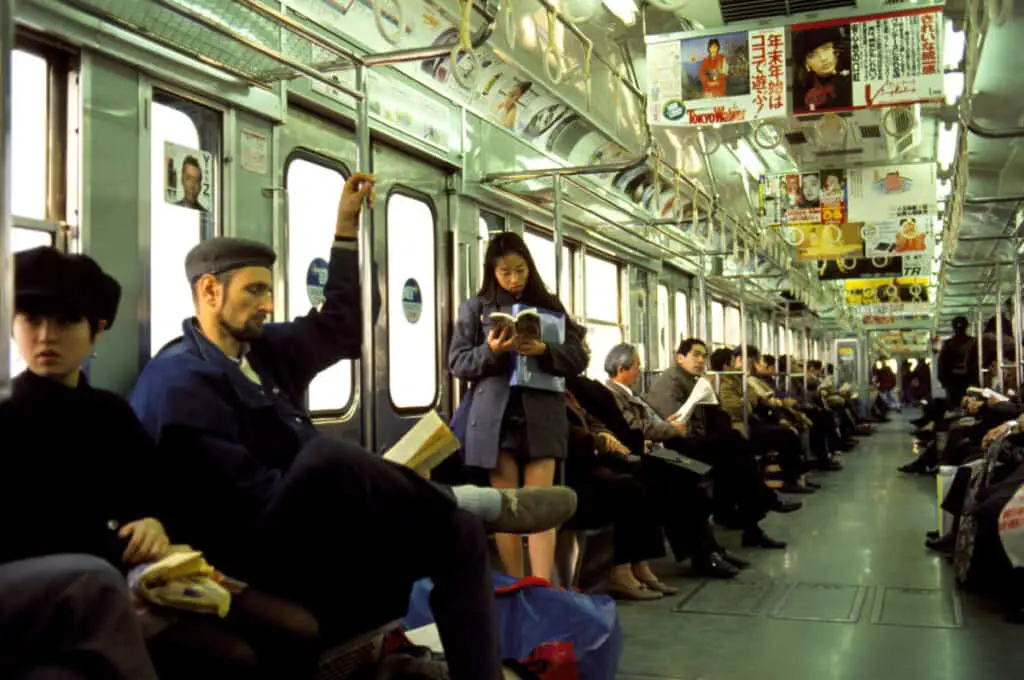
It could be something as simple as a Japanese person teasing you about your grasp on the language or ability to follow traditional Japanese customs, like holding chopsticks properly.
It could also be something as frustrating as not being able to find a place to live because a landlord does not want to rent to a non-native.
You might also find that some people aren’t as open to outsiders as others, and may question your reasoning for wanting to live in Japan.

It’s important to remember that the majority of people in Japan will either treat you the same as everyone else; with indifference, or they will be willing to welcome you and help you learn about their country.



